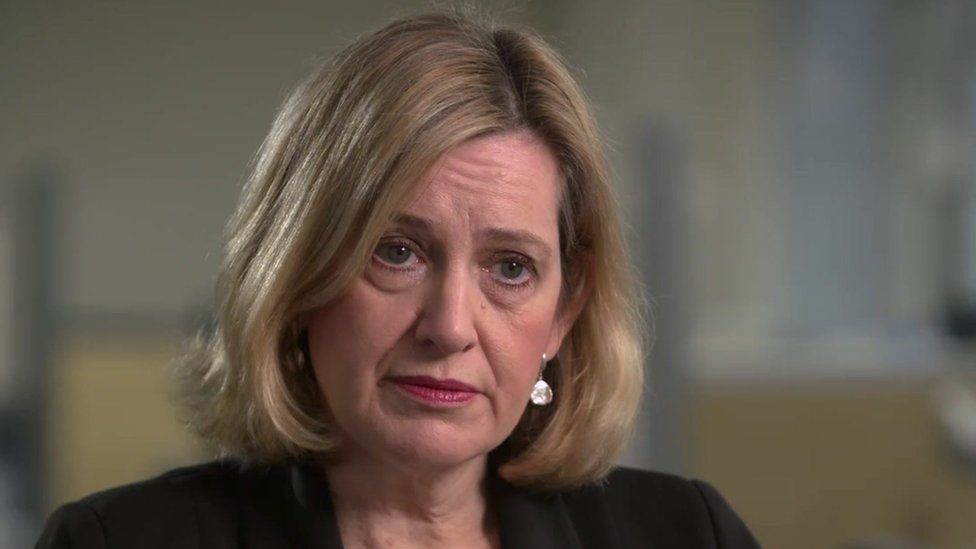Universal credit: Rudd backs tax cut for workers
- Published

Amber Rudd is prepared to push the Treasury to introduce tax cuts for low paid workers, potentially costing more than a billion pounds.
In a major change to the troubled universal credit system, the work and pensions secretary said she favoured calls to cut the "earnings taper".
This is the rate at which benefits are reduced when claimants earn more money.
Ms Rudd indicated support for the taper to be reduced from 63% to 60%.
That would cost around £1.5bn according to the Centre for Social Justice - which drew up the original plans for universal credit.
Asked on Newsnight whether she favoured a reduction in the taper rate to 60%, the work and pensions secretary said: "Yes and of course I would like to see it go down further. I would like every incentive we can find to make sure that people going back into work realise that it is the best thing for them and that they don't get a huge 90% tax rate.
"I have to manage that with the needs of the taxpayer, the demands of the chancellor, the reality of how far we can go in terms of spending with universal credit. But that is always going to be at the top of my mind."
The Centre for Social Justice (CSJ) called it a "brilliant idea".
"If government reduced the taper rate from 63% to 60% it would effectively give Britain's lowest paid workers a 3% tax cut, and help make it pay to work more," CSJ chief executive Andy Cook said.
Former Work and Pensions Secretary Iain Duncan Smith, who introduced universal credit, says his original plans were severely undermined by cuts imposed by George Osborne.
The original taper rate was meant to be 55%. This was increased to 65% before being cut to the current level of 63% under another former work and pensions secretary, David Gauke.
No blame for Bercow
In her Newsnight interview, cabinet divisions on Brexit were also highlighted when Ms Rudd suggested it was wrong to criticise John Bercow's performance this week.
Cabinet ministers have been highly critical of the commons speaker after he broke with precedent to allow the former Attorney General Dominic Grieve to table an amendment to a government business motion. This forces Theresa May to report back to parliament within three sitting days if she loses her Brexit vote next week.
"I'm less inclined to blame the speaker," Ms Rudd said.
"I think that what we are seeing is the House asserting itself in the face of its concerns about no deal. I'm not really surprised about that. A majority of MPs are likely to come forward and say they want to stop no deal. I understand that. The real difficulty... is there doesn't seem to be a coalescence around an alternative. The only deal we have is the withdrawal agreement."
- Published11 January 2019
- Published23 September 2022